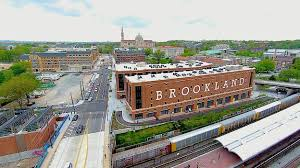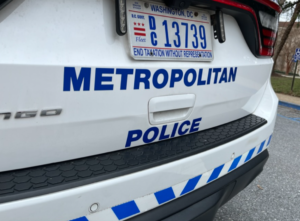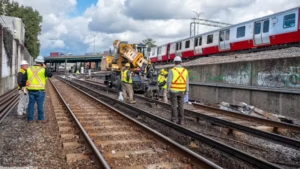Brookland Is NOT A Food Desert. You Should Stop Even Making the Suggestion.

Image courtesy of WAMU
By Eva Lynch
If you are a Catholic University student who at some point has had to cook a meal for yourself, chances are you have lamented that the Brookland neighborhood does not offer closer and more affordable access to getting your ingredients. Or, if you have not had this experience, you have likely heard friends and classmates voicing similar lamentations. The phrase “food desert” is often thrown around.
However, according to what federally constitutes a food desert, Brookland doesn’t fall into the category. The USDA defines a food desert as “low-income census tracts with a substantial number or share of residents with low levels of access to retail outlets selling healthy and affordable foods.” Within this definition, a “census tract” is a subdivision of a county that averages about 4,000 people (in this case, Ward 5), “low-income” means a poverty rate of 20 percent or higher (or a median household income at or below 80 percent of the metropolitan area median household income), and “low-access” means at least one-third of the population lives more than one mile from a grocery store.
According to these definitions and the USDA’s Food Desert Locator, Brookland is not a food desert, because of Yes! Organic Market on 12th street. Further, because a food desert is determined by ward rather than by specific neighborhood (at least in DC), Giant Food on Rhode Island is also considered a grocery store that further negates Ward 5 as a food desert.
To gauge Brookland residents’ thoughts on the issue outside of Catholic students’ own opinions, I posted a question in the Brookland Facebook group, hoping to start a conversation and gather more information than was immediately available. Anyone who is a part of that group knows its members love to be active, so while I was expecting high levels of interaction, I did not expect the nature of the response that I got.
My fellow Brookland neighbors were pretty offended that I would even suggest such a thing. Out of 18 comments within the first hour of the post, all agreed that Brookland did not constitute a food desert because of Yes! Market and the proximity of Giant in Rhode Island and Trader Joe’s in NoMa.
Catholic University students may remember whispers of plans for a grocery store to inhabit the first floor of the new Cornerstone building, Everton, on 7th and Monroe streets. However, though reasons for this plan falling through have not been published, the Advisory Neighborhood Commission’s January 2020 newsletter posits a few possible explanations: the space was too small, and reconfiguring too expensive, or that the rushed construction led to leveling issues that forced a potential major grocery partner to back out of whatever preliminary deal there might have been.
Senior Adeline Dygert says even though Brookland is not a legally designated food desert, the proximity to an affordable grocery store sometimes makes our neighborhood feel as though it is.
“As a senior living off-campus, I have found it nearly impossible to go to a grocery store without a car. Yes! Market is too expensive, and it is inconvenient to take the metro, walk to a grocery store, and haul my groceries all the way back,” Dygert said. “I could see how families who have children, 9-to-5 jobs, and a grocery budget would have a hard time swinging the same commute. I wish there was a walking-accessible and inexpensive grocery store for Catholic students and our Brookland neighbors.”
So, although CUA students may be dissatisfied with the grocery options our neighborhood offers, Brookland residents say it is not fair to equate this preference with a social justice issue. While a conversation about getting a new grocery store closer to our neck of the woods is probably warranted, it won’t be because Brookland is a food desert, it will be simply because of its residents’ desires.





